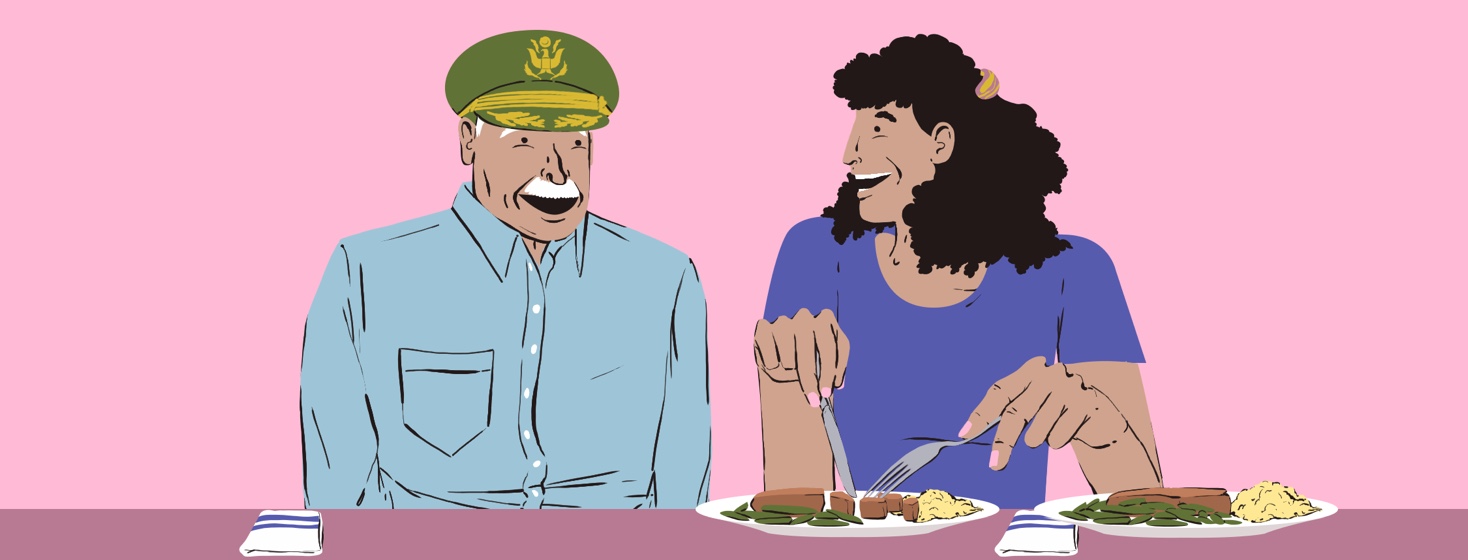"Dignity, Always Dignity!": Preserving Dignity for People with Alzheimer's
Singin’ in the Rain is one of my family’s favorite movies. Gene Kelly as Don Lockwood is being interviewed on the red carpet about his rise to fame and fortune. As he recounts events in glamorous detail, the less than glamorous truth is played out on screen. “Dignity. Always dignity!” is how he melodramatically described for the audience his ignominious ascent to stardom.
My dad demanded respect, but was also a humble man
My dad had his own saying. It always began with, “A man in my position…” Now, Dad would say this tongue in cheek. He was a full colonel in the US Army, a doctor, and a hospital commander in two countries. He deserved and commanded a certain amount of respect. He was also a humble, godly man and saw the humor in life getting in the way of decorum.
I can barely remember how it started. Perhaps it was a tale of another officer who had complained about his unmeritorious treatment that Dad had regaled us with around the dinner table, or perhaps it had been my dad caught being pompous. Either way, it became a family joke.
“A man in my position shouldn’t have to wait for dinner!?”
“A man in my position should have the remote!”
“A man in my position shouldn’t be washing his own car!?”
Any perceived slight or inequity would produce this bit of self-mockery and facetious complaint. He wouldn’t even have to finish the sentence. Yeah, yeah, yeah, Dad. We did respect Dad, though. In a humorous way, it did remind us. He did’t get everything he wanted, but we did what we could.
My dad was ultimately diagnosed with Alzheimer's & Parkinson's
“A man in my position…” got Alzheimer’s disease and Parkinson’s disease.
How could we preserve his dignity, always dignity, when Dad walked feebly around in his robe or pulled himself around the house in his wheelchair? How could we preserve his dignity when he couldn’t seem to shave most of his face with his electric razor or when he had angry outbursts? What could we do when the adhesive from his medicated patches left him looking like he had been attacked by an octopus or when he did things with the door open that men should keep in private and my kids saw? Where is the dignity? Where is my brilliant dad?
Treating my dad with dignity
Now, where did I put my big girl pants? I had an appointment with a social worker not too long ago, and she reminded me of the importance of treating the loved one who has dementia with dignity. He deserves it no matter how he acts. It’s about who he is, not how he is.
My dad has earned dignity with his life. I can choose to act in a way he deserves. He cannot anymore. I have heard that the way you treat people tells more about you than them. There is the Golden Rule: Do unto others as you would have them do unto you (Matthew 7:12). And then there is our family motto: You do for family. He is my dad, not my kid. In showing respect to him and for him, I am uplifting both of us. Her words cut deeply.
What does treating my dad with dignity look like?
My parents moved back to Mississippi in June. They had been in New York too long. Dad was getting more unsteady on his feet, and he slid slowly off the bed to the floor one night. Mom made him comfortable, letting him sleep there and waiting until morning to call a cousin to help her get him up. She figured he couldn’t hurt himself on the floor. He was safe and comfortable.
However, the neighbor lady, who Mom had begun paying to help her, was furious. She thought it was so undignified for “a man in his position” to be left on the floor! She wouldn’t talk to my mom for a week or two! Now, I was mad at that woman! Dignity takes different forms! Mom was being considerate of others, not waking them up in the night to pick him up. Dad was content. Mom didn’t feel it was an emergency. She was showing respect and care for my dad.
Caregivers deserve respect and the dignity of grace. We are making it up as we go along!

Join the conversation